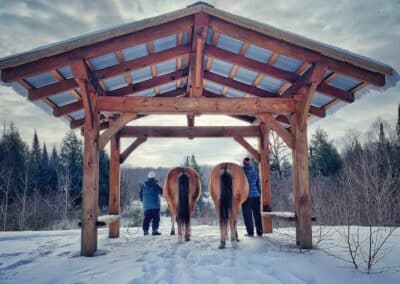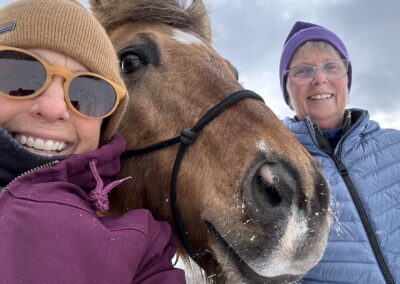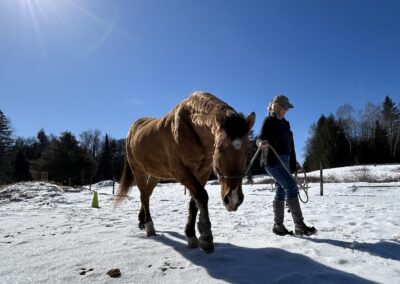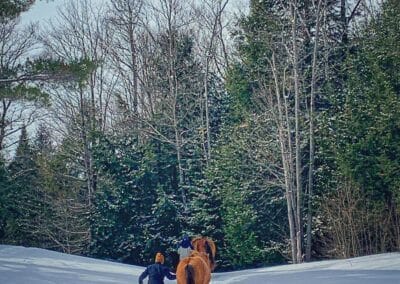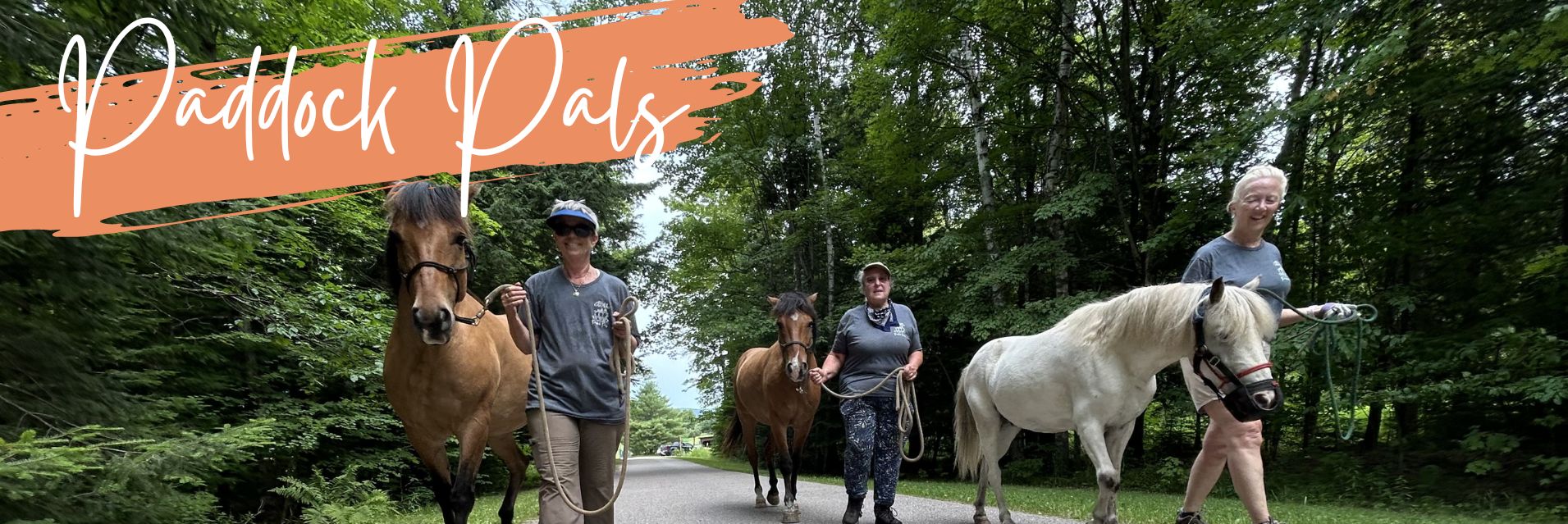
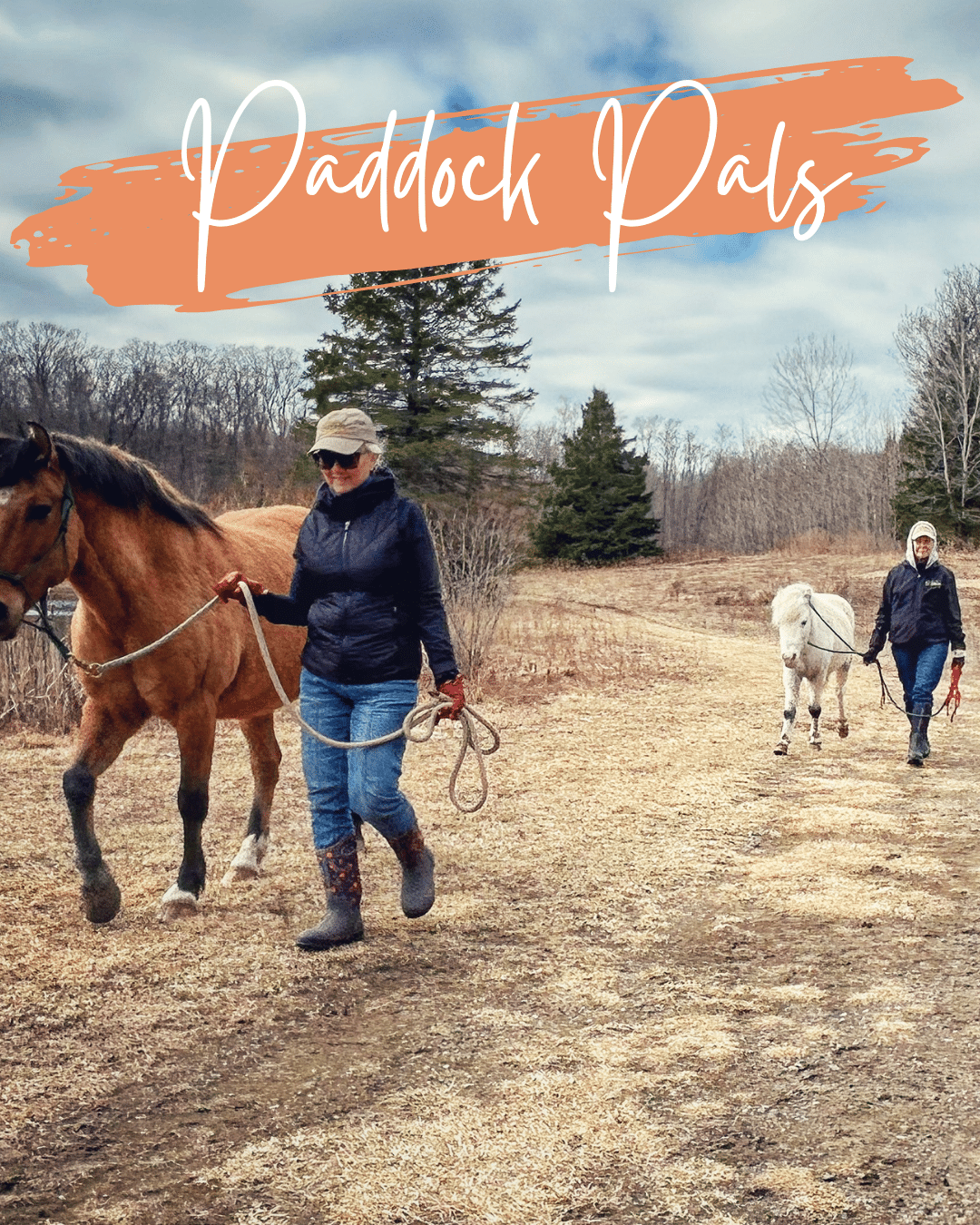
Meet the Paddock Pals
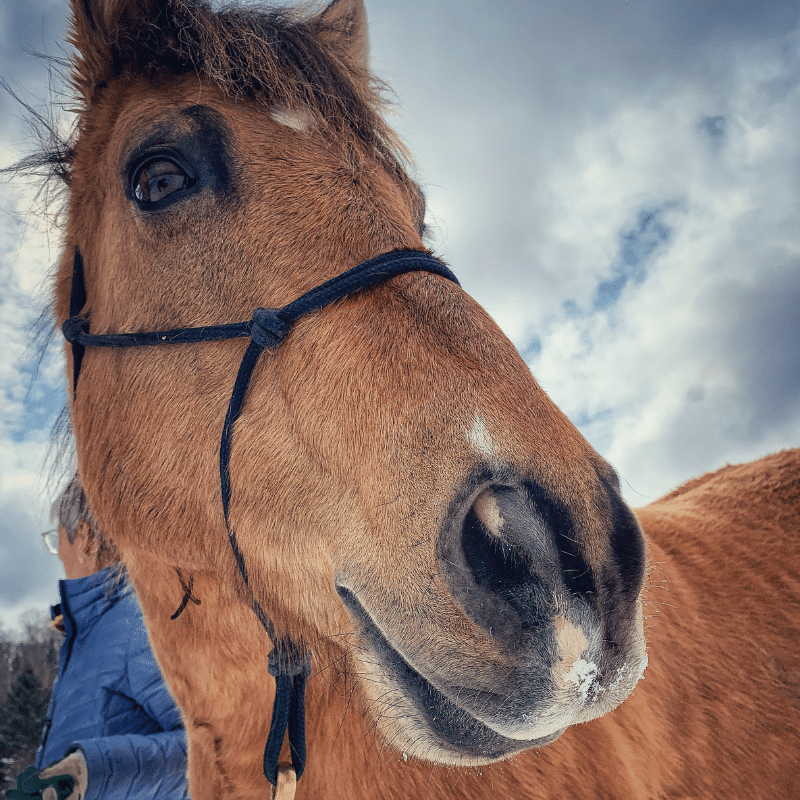
Maple
Birthday:
August 23, 2013
(right here at Abbey Gardens)
Breed:
Ojibwe Horse* (Ojibwe name is Akoozi)
Distinguishing features:
One white sock and bossy!
Favourite Activity:
Running in the Big Field and being the herd boss.
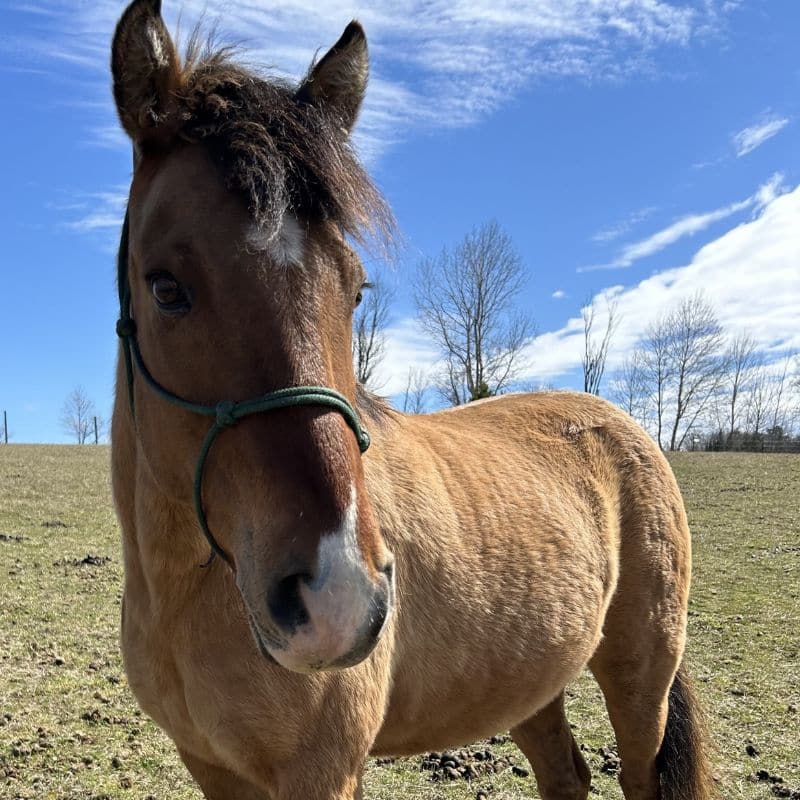
Sammy
Birthday:
August 17, 2014
Breed:
Ojibwe Horse* (Ojibwe name is Wawasum)
Distinguishing features:
Two white socks and laid back, so much so he gets called “Mr. Chill”!
Favourite Activity:
Sleeping in the sun, 365 days a year!
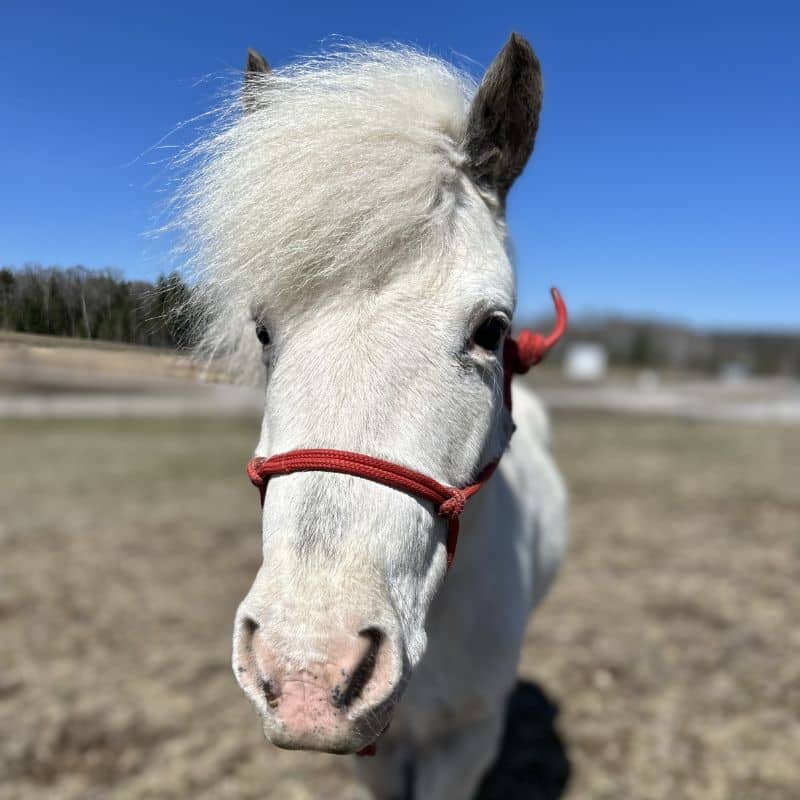
Flapjack
Birthday:
April 30, 2013
Breed:
Mini Appaloosa Horse
Distinguishing features:
Mostly white and small.
Favourite Activity:
Keeping his human caretakers on their toes.
Our “Horsestory”
In 2012, Abbey Gardens participated in the Host Farm Program run in partnership with Rare Breeds Canada (now Heritage Livestock Canada) and The Lac La Croix Indigenous Pony Society (now The Ojibwe Horse Society). We fostered a mare named Sika (Ojibwe name is Wishkossiwika) and a stallion named Chase (Ojibwe name is Biminajikawa) and welcomed their colt, Maple (Ojibwe name Akoozi) in August 2013.
In 2014, Sika moved on to her new home in Port Hope, where she became a brood mare for an Ojibwe Horse preservation program. Today, she lives at Madahoki Farm in Ottawa. Chase lives at Grey Raven Ranch in Seine River.
Ponies and horses are social creatures that thrive in a herd, so we purchased a miniature horse to be a pasture pal with Maple after his parents left. Flapjack (formerly known as Oliver) came to us from a local hobby farm. He was born in April 2013 and is a miniature Appaloosa with a mischievous personality who loved to play with Maple! These two quickly became the perfect pair.
Our pair soon became a trio when we received a call that Sika had given birth to Maple’s full brother. Sammy arrived at Abbey Gardens in 2015. This wonderful threesome are the Abbey Gardens Paddock Pals.
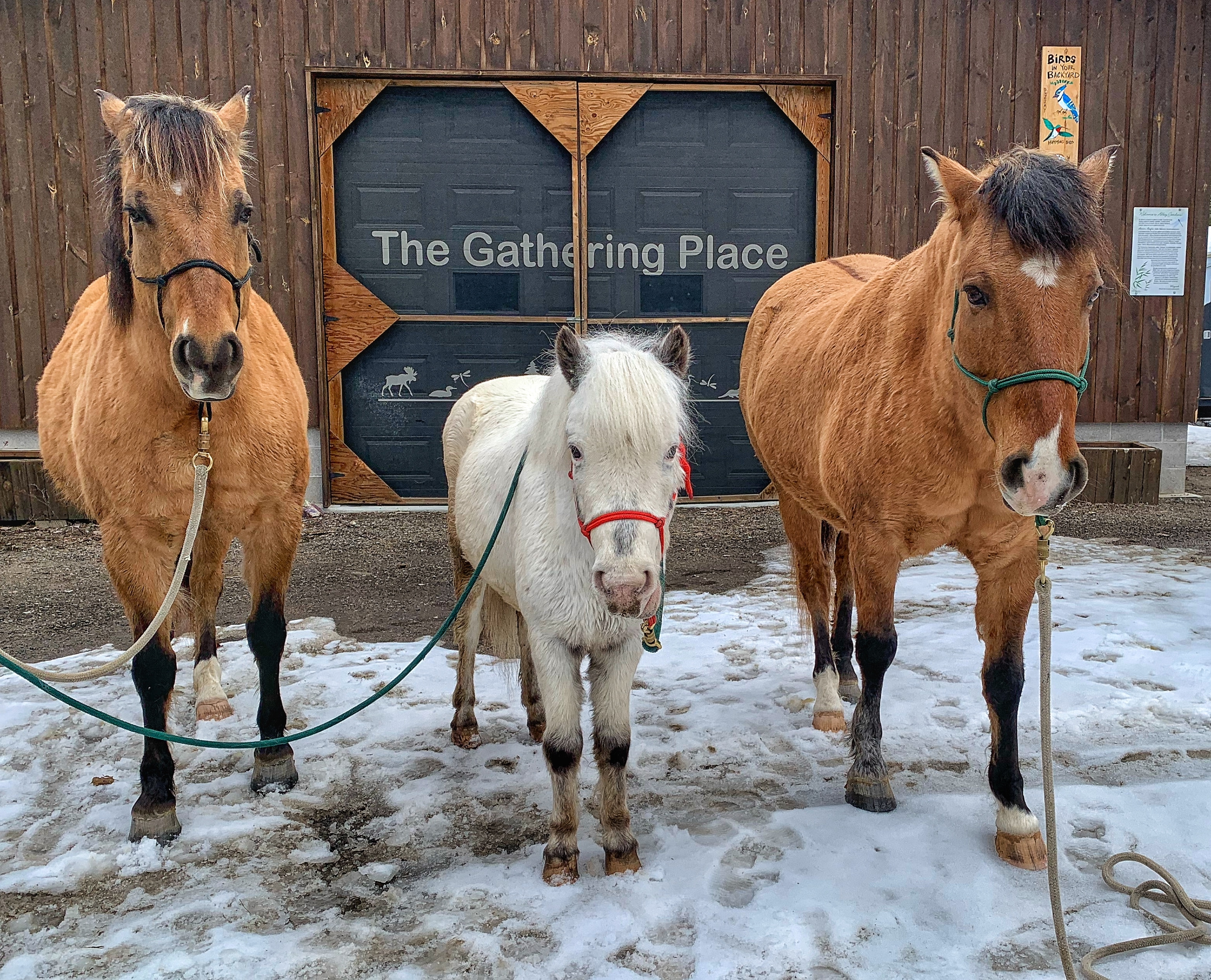
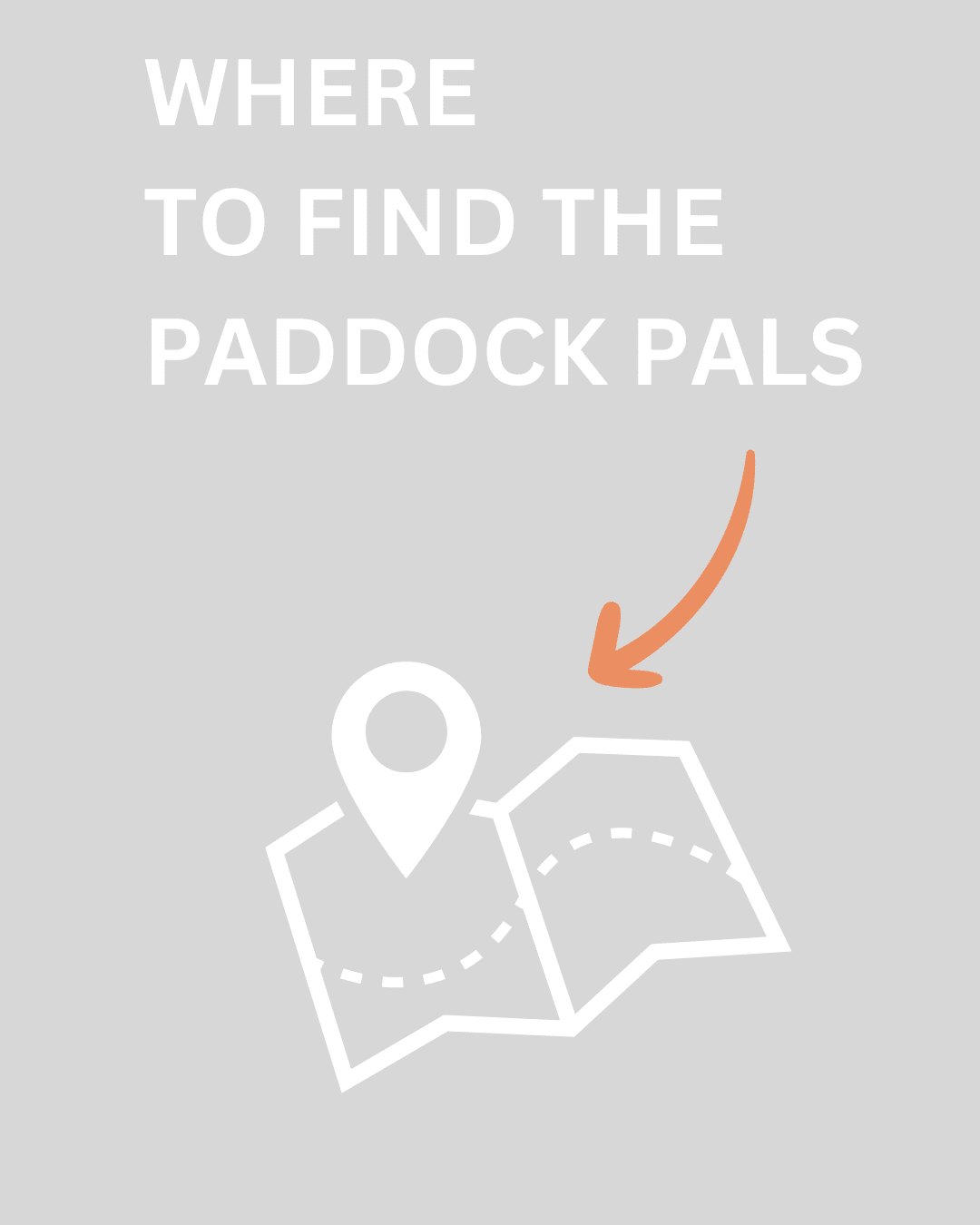
Our Pony programs
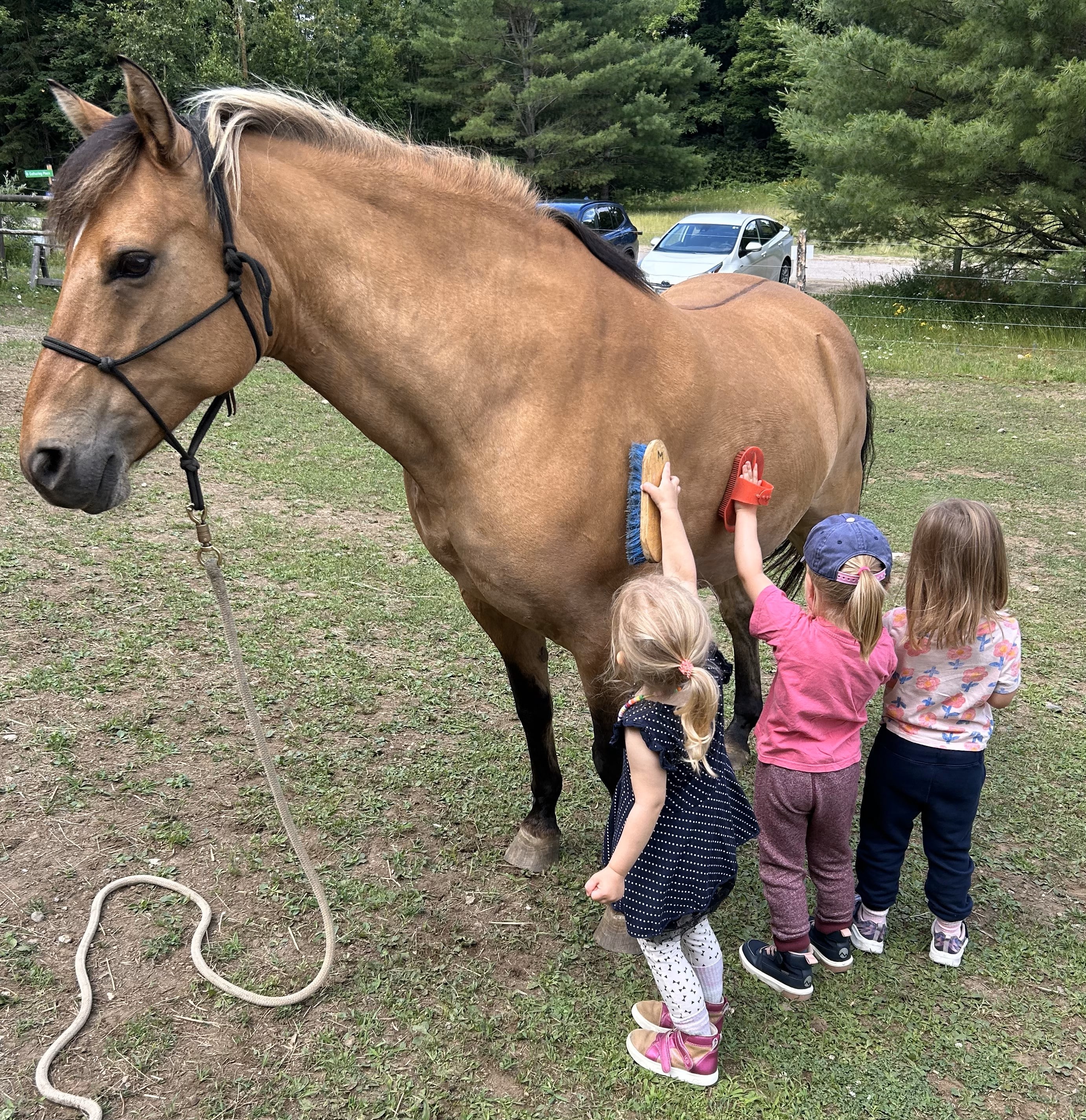
Pony Time
Get your chance to go beyond the paddock gate with one of our unique Pony Times!
Take selfies and give a horse a hug during your time with us. Each session is tailored to meet the needs and abilities of the group, and includes a combination of grooming, feeding, walking, and working on basic commands (all activities are on-ground, there is no riding).
Pony Selfies
Abbey Gardens hosts a number of events throughout the year. Maple, Sammy and Flapjack love to attend. They pose for selfies with you and are always ready for a gentle scratch. Watch the main page of the Abbey Gardens website for event details!


Pony Selfies
Abbey Gardens hosts a number of events throughout the year. Maple, Sammy and Flapjack love to attend. They pose for selfies with you and are always ready for a gentle scratch. Watch the main page of the Abbey Gardens website for event details!

Equine Assisted Learning
Equine Assisted Learning (EAL) is an experiential approach to teaching life skills using horses. Our EAL program offers a unique experience to get up close and personal with Maple, Sammy and Flapjack while learning life skills in a fun and interactive way. We are privileged to have Lesley English, an EAL certified instructor, on our team. Personalized programs for groups or individuals developed upon request.
Our Pony team
The Abbey Gardens’ Pony Team is a group of dedicated humans who volunteer their time to care for Maple, Sammy and Flapjack. No equine experience is necessary and the commitment is flexible. Our team meets on Mondays, Wednesdays, Fridays and some Saturdays. From May 1 to October 1 we meet from 10 am to noon. During the rest of the year it’s from 10:30 am to 12:30 pm.
There are a range of duties that we take care of including cleaning up the paddock, grooming/feeding/exercising the ponies, participating in programs/events and a bunch of behind the scenes tasks.
There is nothing better than being outside and hanging out with the Paddock Pals. It is truly an enriching experience. Join the team!
Ojibwe Horses
Ojibwe Horses (formerly known as Lac La Croix Indigenous Ponies) are believed to be the only existing horse breed developed by Indigenous People in Canada. Wild herds once roamed the boreal forests of northwestern Ontario and northern Minnesota often sharing territory with Ojibwe People. Elders and Knowledge Keepers place them in North America thousands of years before European contact. According to the Ojibwe Horse Society, “DNA evidence shows they are different from European-introduced horse breeds in distinctive ways that made them an integral and harmonious part of the North American boreal forest. The testimony of Indigenous elders affirms they have had a spiritual and working relationship with the Ojibwe Horse throughout time.” Horses were kept and used in the winter for hauling logs and ice, checking trap lines, and riding. In exchange, horses received shelter, food, and protection from predators. They were turned loose every spring to roam free.
Over time, industrialization and intentional culling led to severe population decline. By mid-century, only a small herd roaming free in the wilderness surrounding Lac La Croix First Nation remained. This remote community was the last to maintain its relationship with Ojibwe Horses. In 1977, Canadian health officials reportedly deemed the 4 remaining mares a health risk and planned to destroy them. Fortunately, 5 men from Bois Forte and Lac La Croix rescued the mares and transported them to a Minnesota reserve where they were bred to a registered Spanish Mustang. Dedicated breeders have since rebuilt the population to approximately 150-200 individuals located across Canada and the United States; however, the breed is still considered “critically endangered” by Rare Breeds Canada. Ojibwe Horses are now used in equine therapy, Indigenous programs, and tourism-based activities.
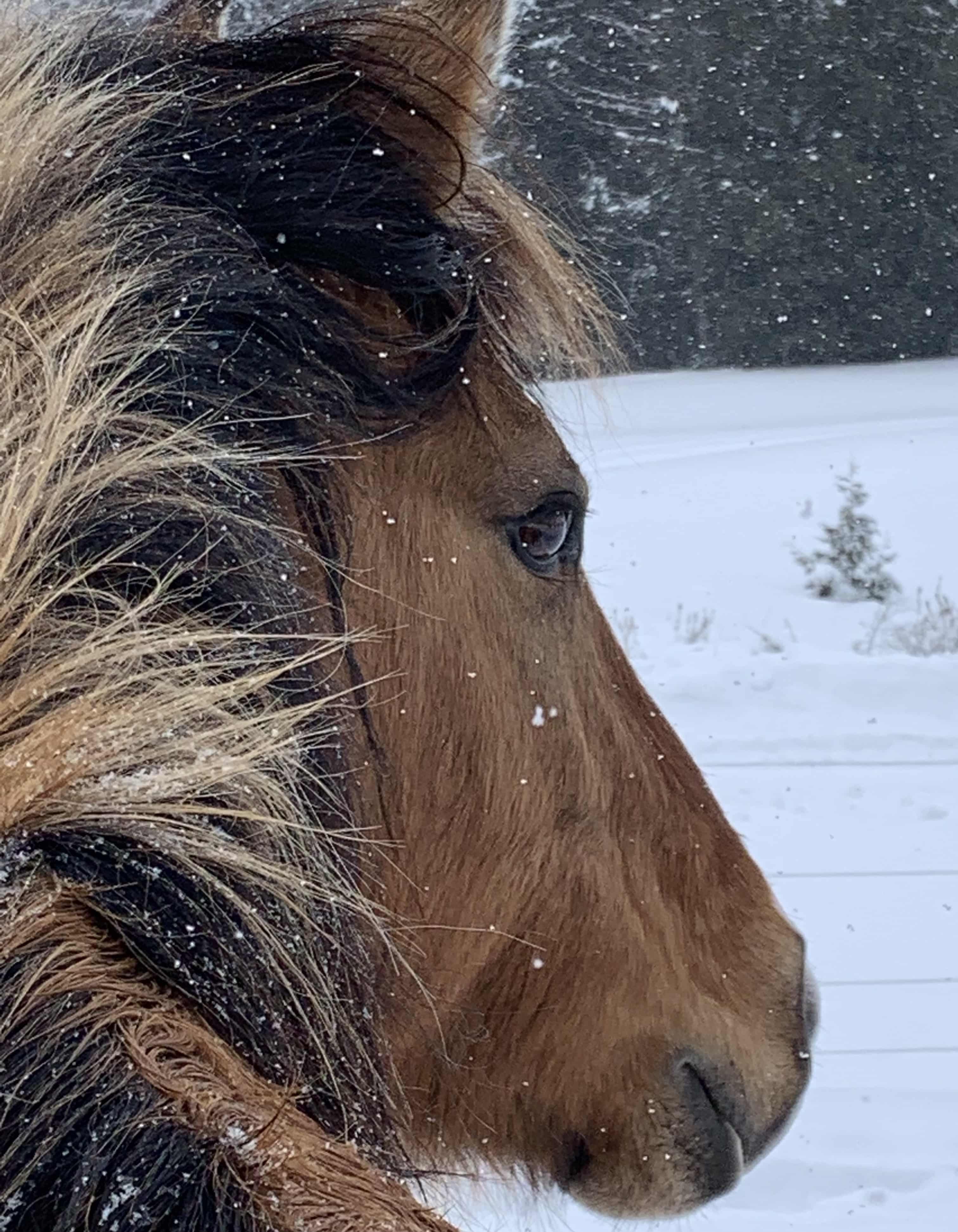
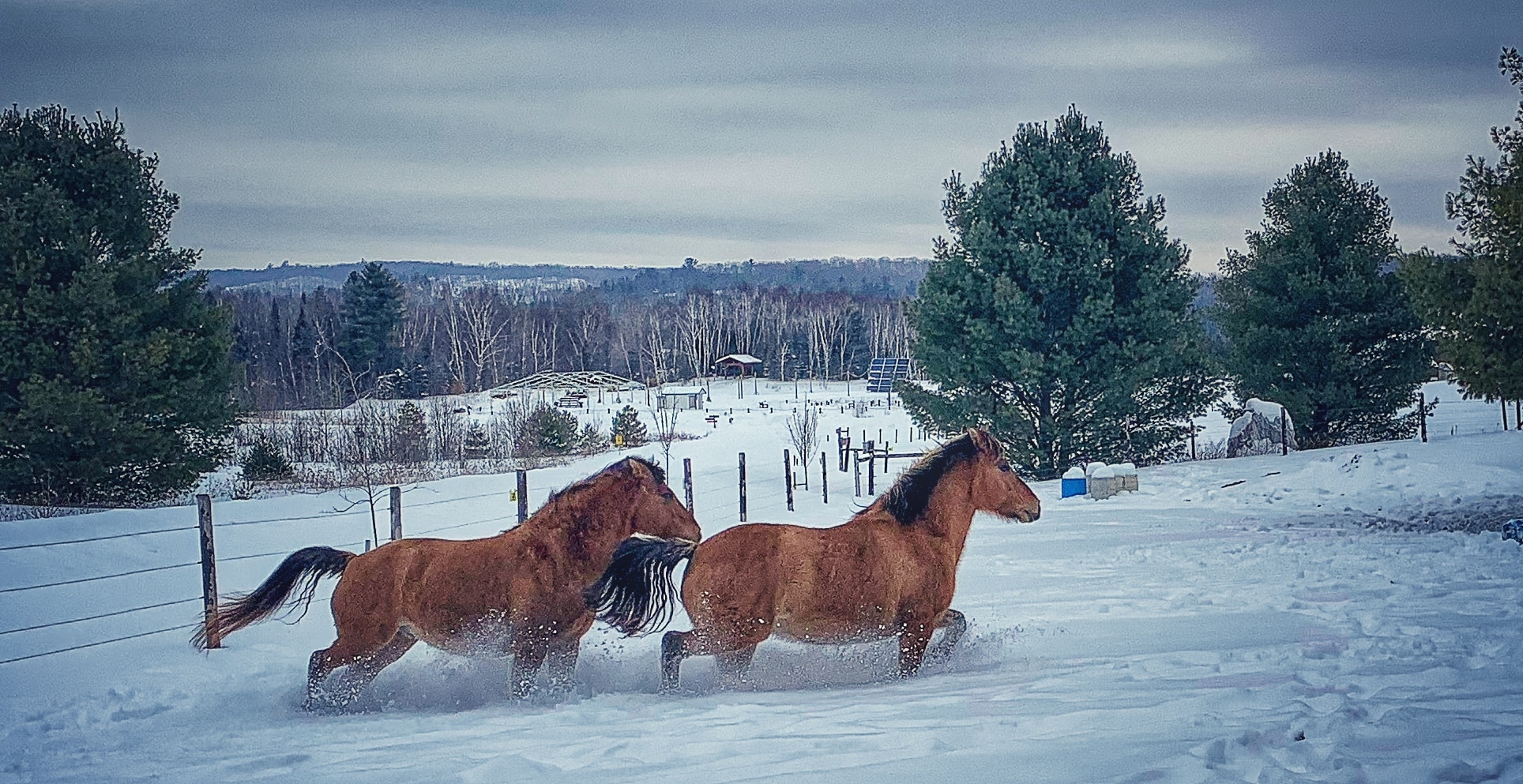
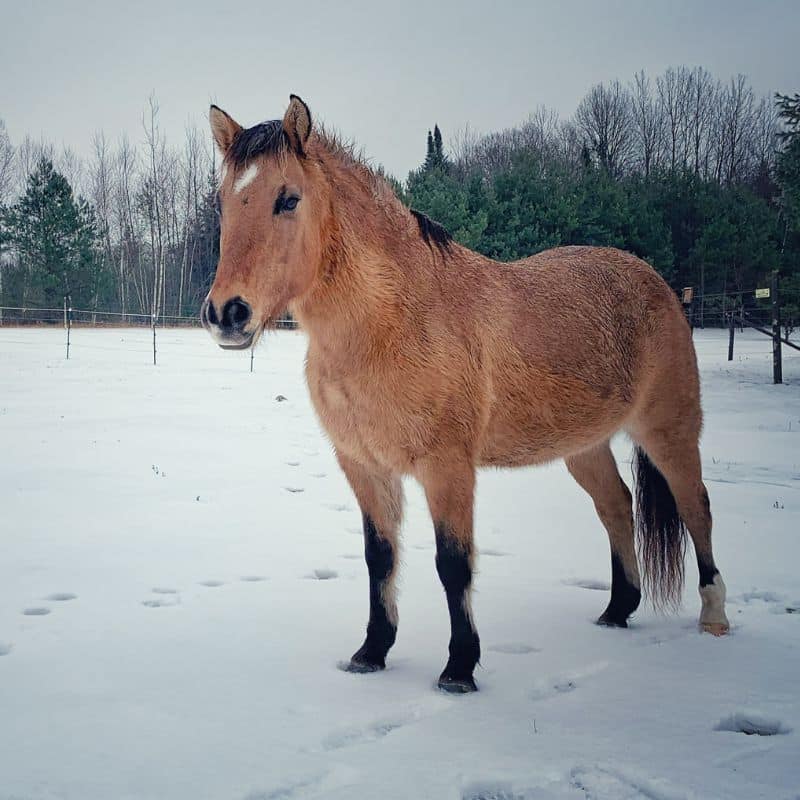
Support our Horses
Your contribution aids in the overall care of our herd, supports the development and delivery of our Pony Time programs, enriches our summer camp experience, and furthers our outreach and education efforts on Ojibwe Horses. Your donation goes a long way. Thank you!
